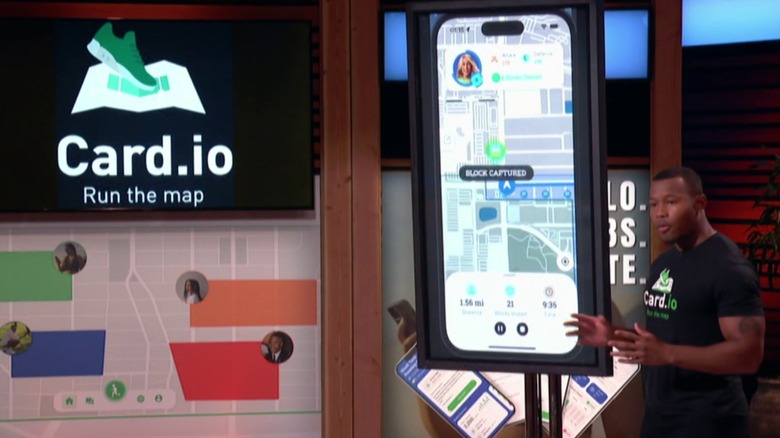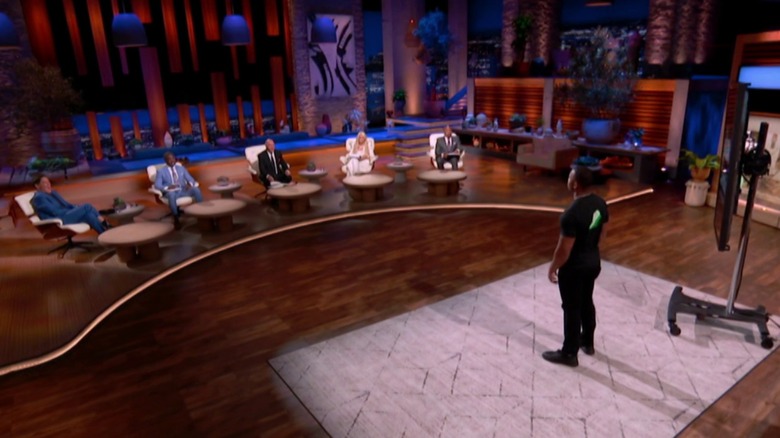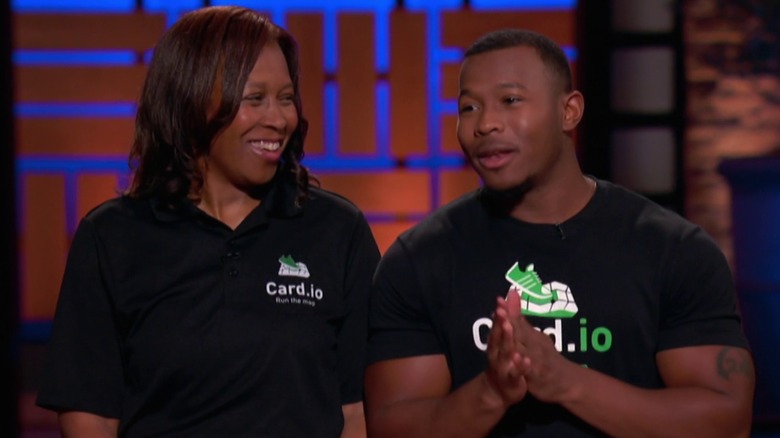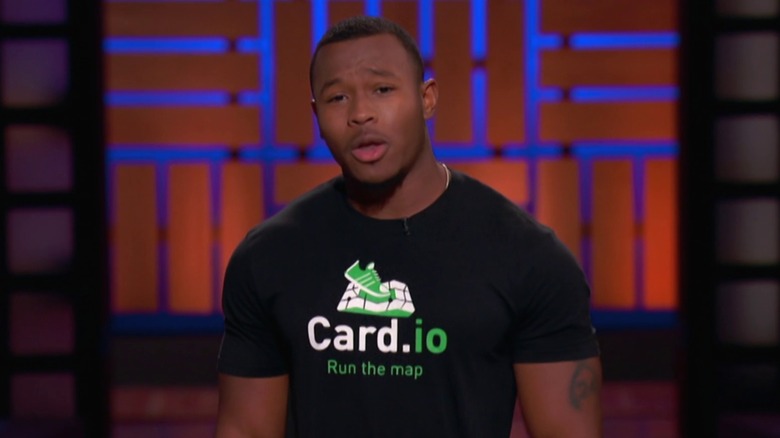What Happened To The Card.io Running App From Shark Tank Season 16?
"Shark Tank" has featured several health and fitness-focused apps throughout its long run on national television. In Season 7, the health and fitness app Sworkit landed one of the biggest investments on the show at $1.5 million. Meanwhile, the Liberate meditation app failed to secure a deal when it appeared in Season 13. On the show's 16th return to the small screen in October 2024, another fitness app tried to lure the sharks with a simple but very unique approach to fitness.
Card.io is a fitness app that transforms the usual cardio exercises into a social gaming experience. Its premise is quite simple: Users need to run, walk, or bike around the city to mark their territory. The app generates a different map each time a player starts a session, and since this is a real-time social activity, users battle against each other in what would appear to be a turf war. The app works for individual users, but there's also an option to form teams and take the action to the next level.
Card.io's creator, Destin George Bell, strongly believed that his app could change the landscape of cardio fitness significantly. However, as a fairly new app and company, he knew he needed help to really put his brand out there and further develop Card.io and its offerings. And so he took a chance at landing an investment with the sharks in "Shark Tank" Season 16's premiere episode.
What happened to Card.io on Shark Tank?
Bell opened his pitch with a firm declaration of what he was asking for: $150,000 for 5% equity in his company. During his presentation, he shared that he came up with the idea for Card.io when he was broke and living in his car during the COVID-19 pandemic. He didn't have the means to build the app, so he reached out to 400 engineers for help. Only one responded, but he happened to be a founding engineer of Pokémon GO. The engineer gave Bell the email of Pokémon GO's CEO, and Bell emailed every week until they finally budged and provided a $50,000 grant to start the business.
The sharks were impressed by Bell's unwavering grit. However, this did not translate to investment offers right away. Lori Greiner didn't take the bait since she was not interested in running or gaming. Kevin O'Leary was critical of the figures Bell presented and couldn't wrap his head around the $3 million valuation, knowing Card.io had only made $4,000 in the previous month. Mark Cuban, who is exiting "Shark Tank" after Season 16, also did not see a successful future for the venture.
Guest sharks Rashaun Williams and Daymond John immediately had an understanding that they would like to invest in Card.io. They offered the $150,000 investment but asked for a higher 15% equity in return. Bell tried to bring it down to 10%, but they stood firm. After bringing in his mom for advice, Bell accepted the offer.
Card.io after securing a deal with two sharks
After the episode's taping, the deal Bell secured with Williams and John was finalized. In behind-the-scenes footage shared by ABC on YouTube, the sharks expressed their enthusiasm over the partnership, noting that it was a "good deal" to have someone like Bell, who has a story to tell and the determination to back up his vision for the app.
Since appearing on "Shark Tank," the company has been scaling its operations by expanding the app's features and boosting its number of users and engagement. When the episode aired in October 2024, Card.io was only available for iOS devices. Months later, the company rolled out a version for Android users. During Bell's pitch, he mentioned that Card.io had 22,000 users in 70 countries. Based on a post he shared on LinkedIn in March 2025, the app has since reached 40,000 users across 80 countries.
Card.io uses a freemium model, so the apps are free to download from Google Play and Apple's App Store. Users can join the game right away through its free basic membership. To access premium features like the social media-type functions and the option to disable ads, users need to pay the $25 monthly membership fee. There's no word on how much Card.io has earned from its paying users thus far. At the time of filming the "Shark Tank" episode, Bell said his business had made $470,000, but that included $150,000 in grants from Niantic, the parent company of Pokémon GO.
What's next for the Card.io founder?
Bell has been very hands-on with Card.io since landing a deal with the two sharks. He has been actively promoting his company through speaking engagements, TV guest appearances, and podcast interviews while sharing motivational lessons on what it takes to be a self-starting entrepreneur. Speaking at the Gatton College of Business and Economics' Von Allmen Center for Entrepreneurship, Bell said that "The biggest lesson I learned is that a 'no' is a not yet. I've been told no so many times in my life that if I took that to heart and never did anything that was met with resistance, I'd still be sleeping in my dad's attic on an air mattress."
Based on his social media activity, he and his co-founders have been working to expand the Card.io team, sharing a job opening for a lead developer. He has also secured more partnerships apart from the ones with the Cleveland Marathons and the Road Runners Club of America that he mentioned on the show. In March 2025, Card.io was the partner app for running shoe brand Hoka's TX Blitz running competition across Dallas-Fort Worth, Austin, and Houston, Texas.
Card.io has also earned more investments under Bell's leadership, receiving a $100,000 grant from the venture capital firm Render Capital. Given the circumstances, it appears that Bell will be preoccupied with Card.io's aggressive growth and expansion for the time being.



